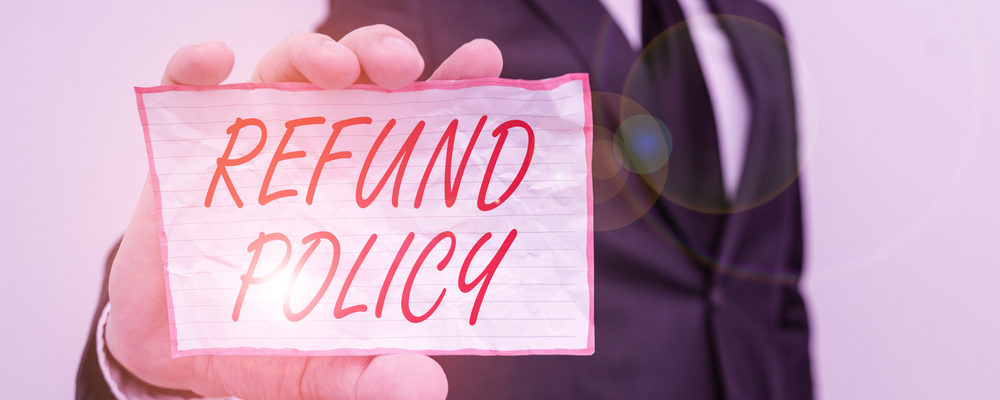Two UK watchdogs have been forced to intervene with the private sector, following complaints over firms withholding refunds for cancelled services amid the Covid-19 crisis.
In late April, the Competition and Markets Authority (CMA) announced that it has opened a probe into companies’ cancellation and refund policies, as relevant consumer complaints now account for four out of every five the body receives (CMA, 30 April 2020).
“So far,” it said, “concerns include people being pressured to accept vouchers for holiday accommodation which can only be used during a more expensive period, wedding venues refusing to refund any money and telling people to claim on their insurance, and nurseries asking people to pay very high sums in order to keep a place open for their child.”
The three areas that the CMA will look into are i) weddings and private events, ii) holiday accommodation and iii) nurseries and childcare providers. However, it will widen its focus to other sectors once its Covid-19 Taskforce has assembled sufficient data to guide subsequent inquiries.
Just a few days before the CMA’s statement, the Civil Aviation Authority (CAA) spoke out about similar issues involving the nation’s airlines – in particular, reports that Ryanair has been issuing would-be passengers with vouchers for cancelled flights, rather than the refunds they had requested (The Shields Gazette, 27 April 2020).
The CAA was eager to stress the precise wording of its guidelines: “If your flight is cancelled, you will always be due a refund and to be provided with assistance, even if you are not due further compensation.”
Spokesman Andrew McConnell said that the CAA “understands the acute impact that Coronavirus is having on holidaymakers whose travel plans have been affected”, and that it would “take the necessary action to protect consumers”.
In a pair of statements, Which? responded to the CMA and CAA announcements, pointing out that firms must be reminded of their legal obligations.
Reacting to the CMA’s intervention, Which? consumer rights expert Adam French said: “We’ve heard from many distressed people who risk being left out of pocket for significant sums of money as they struggle to get refunds … The regulator must be prepared to step in and take strong action against any businesses found to be breaching consumer law.” (Which? press office, 30 April 2020)
What has gone wrong with leadership at the firms that are failing to comply with these basic legal requirements? Does their reluctance or refusal to provide customers with refunds stem from panic at the wider Covid-19 scenario?
The Institute of Leadership & Management’s head of research, policy and standards Kate Cooper says: “Broadly, I think the word ‘unprecedented’ has been overused in the context of the current crisis. But however sharp your continuity planning, and however robust your risk register, it was highly unlikely that businesses would have planned for a total shutdown that took them from trading to zero trading, virtually overnight. There will be panic-based responses to that, purely because the leaders of firms that have been affected in this way will be in survival mode – as any individual would be in the face of immediate danger.”
She notes: “Obviously, we cannot excuse – much less condone – breaking the law. But in a recent conversation I had with an insurer, it became clear that the sector will be pushing back against clients as time goes on, simply because of the widespread survival mode that has engulfed so many firms.
“Over the past couple of months, we have seen a variety of Covid-19 responses from business owners, ranging from Ed Sheeran’s pledge to pay the staff of his restaurant throughout the crisis, no matter how long it lasts, to somewhat more controversial statements from Richard Branson and Victoria Beckham. In a couple of those cases, we can see that business leaders are prepared to act within the law, while incurring significant reputational damage.”
Cooper explains: “Overall, this crisis is setting an unforgiving test of the values that companies claim to hold. The thing about values – particularly those around trust, integrity and respect, which were such big winners in our recent values research – is that they’re not just for the good times. The real measure of the authenticity of any values system is how effectively it guides and promotes good behaviour every single day – not just the days that suit. Leadership teams must ask themselves: ‘What sort of company are we? Do we want to safeguard our reputation? And if our approach to management is to follow practices that are within the law, but not terribly popular, how will consumers perceive our brand?’
She adds: “Ideally, a values audit for some of these organisations would get to the heart of what they’re really about and what they stand for. And if the answer is just: ‘Making money however we can, from whoever we can,’ one need only look to PPI for an example of how badly that aim can backfire.”
For further insights on the themes raised in this blog, check out the Institute’s resources on managing customer relationships
Source refs:

